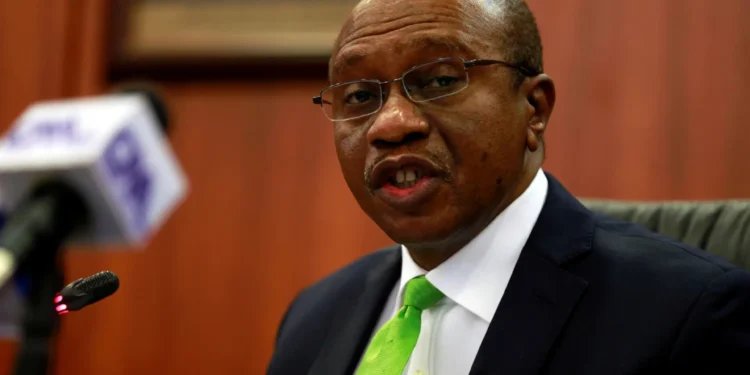The suspended governor of the Central Bank of Nigeria, Godwin Emefiele, reportedly tendered his resignation last month, paving the way for President Bola Tinubu’s nomination of Olayemi Cardoso as the new central bank governor.
This move came just days before the scheduled interest rate meeting, sparking debates regarding the legality of such an appointment, as two governors cannot hold office simultaneously in the apex bank.
Government sources, speaking to Reuters, confirmed Emefiele’s resignation. Emefiele had been suspended from his role as the central bank chief by President Tinubu in June and later detained by state police on charges of procurement fraud.
President Tinubu swiftly nominated Olayemi Cardoso, the former head of Citibank in Nigeria, to serve as the new central bank governor. Cardoso’s nomination was sent to the Senate for confirmation, along with four new deputy governors. However, it remains unclear whether the former deputy governors of the central bank had also resigned.
Reuters reached out to the central bank for comment on the resignations of Emefiele and his deputy governors, but no response was received. Ngelale, a spokesperson for the President, declined to comment on Emefiele’s resignation.
In a statement, Ngelale mentioned, “The President expects the above-listed nominees to successfully implement critical reforms at the Central Bank of Nigeria, which will enhance the confidence of Nigerians and international partners.”
This development comes ahead of the central bank’s interest rate setting meeting scheduled for September 26, where analysts anticipate a more assertive approach.
President Tinubu, during his inauguration in May, pledged a comprehensive overhaul of monetary policy and emphasized the need for lower interest rates. He had criticized Emefiele’s currency policies, which artificially maintained the strength of the Nigerian currency, a stance endorsed by former President Muhammadu Buhari, primarily to support government borrowings in international markets.
The new Nigerian government is focused on encouraging investments instead of relying solely on borrowing to stimulate job creation, aiming to resuscitate an economy grappling with challenges such as record debt, a weakening currency, double-digit inflation, and unstable power supplies.
Olayemi Cardoso’s nomination comes with a background of contributing to an economic blueprint for the new government. He had previously served as the commissioner for financial planning and budget in Lagos state during President Tinubu’s governorship between 1999 and 2007.
As Nigeria faces these transitions in its central bank leadership, all eyes will be on the policies and reforms implemented by the new administration in an effort to stabilize the economy and stimulate growth.











